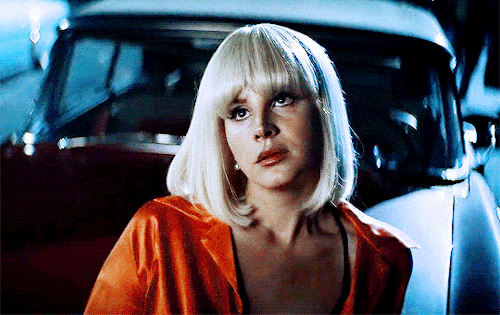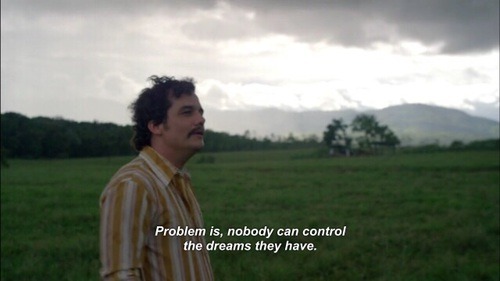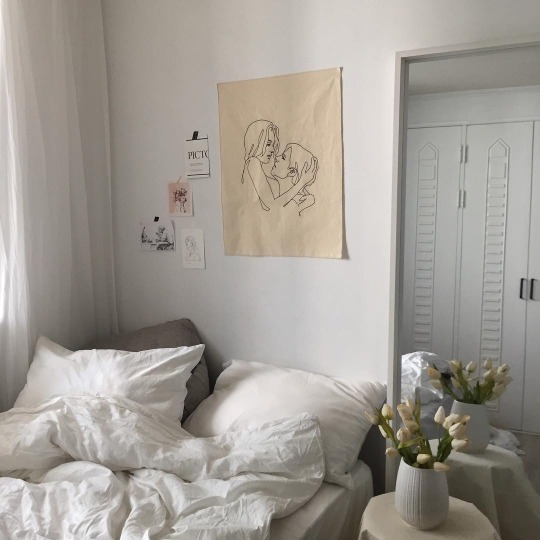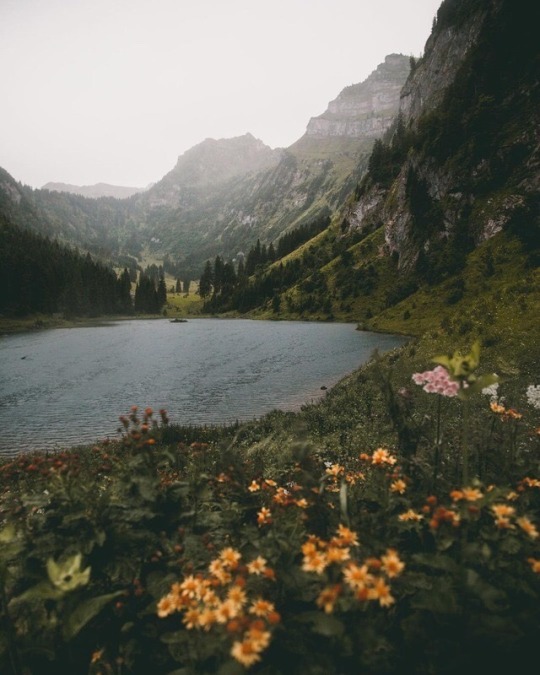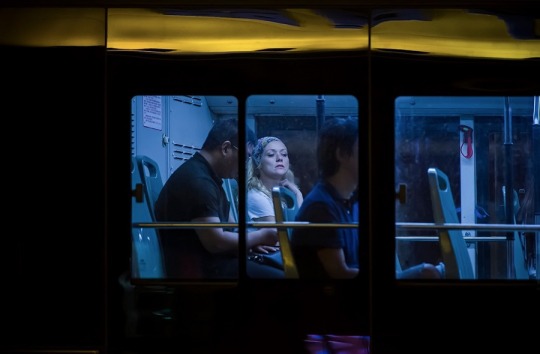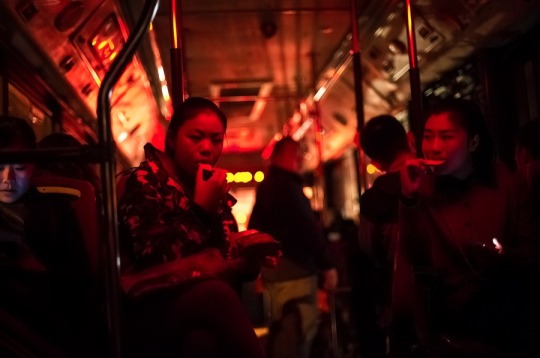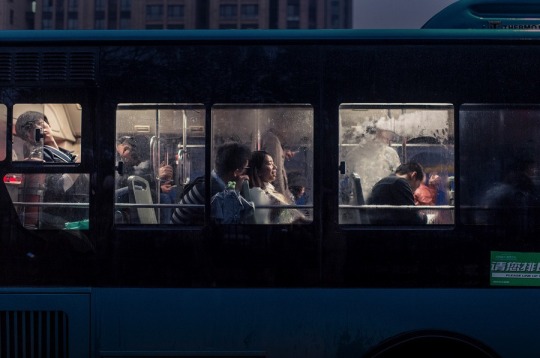Photo
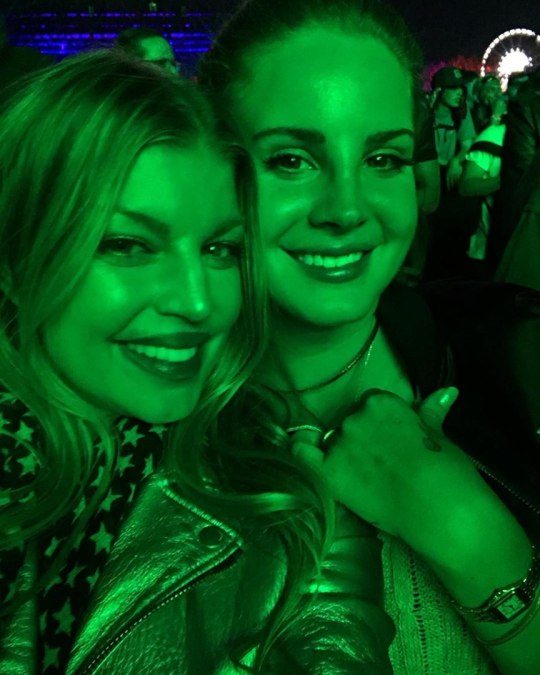
Lana Del Rey with Fergie at Coachella on April 16th, 2016
3K notes
·
View notes
Photo




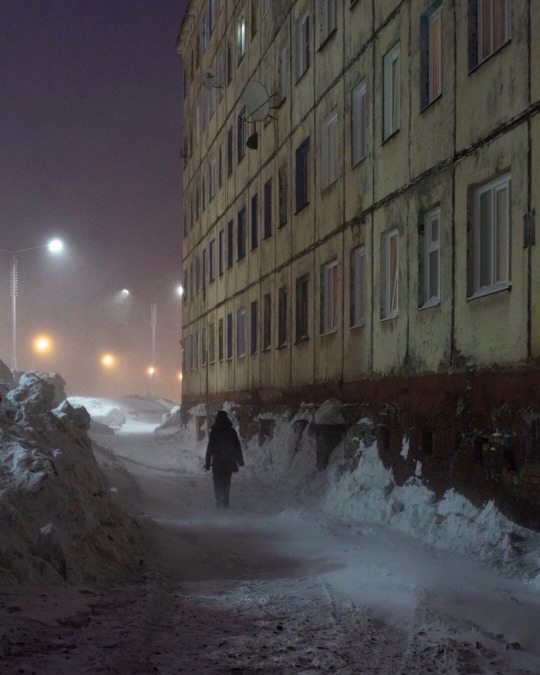

Norilsk, Siberia by Arseniy Kotov
8K notes
·
View notes
Photo

Angela Davis & Ursula K Le Guin, visionary women for a hopeful future
74K notes
·
View notes
Text
will gave me a list of podcasts to listen to. there are two he listens to everyday while drinking and walking through the woods before work. one is ‘you made it weird’ with pete holmes, one is harmontown. to save time i listened to ‘you made it weird’ featuring dan harmon.
according to dan harmon we are living in an artificial universe because evolutionarily, all we are designed to do is Not Die, kill each other, and fuck if there’s time, so the concept of ‘fun’ or ‘fulfillment’ or ‘nameless anxiety over an imaginary future’ are constructs we invented because with all that time idle from not worrying about imminent physical predators we got bored (it’s true) and according to dan harmon without alcohol life is no better or worse, just more boring (it’s true), so even if you have a noticeable problem it’s a bit needlessly righteous to quit. dan harmon also thinks after we die there’s nothing (i hope not, unless the ‘something’ would be dark and bad, so many nevermind) anyway the point is do whatever you feel you have to for now to keep going, unless it really hurts people, then i dont know, fix it, and if you can’t do that, at least have the decency to keep to yourself.
i imagine will walking through a snow-blanketed forest listening to this deluge of sensible, self-righteous advice from a man who is notoriously self-destructive and hedonistic. will wants a hero but dan harmon was mean to his wife a lot and is still immature enough to think being creative makes you a worthwhile person by default, so he’s probably a bad choice. it’s cool that he invented rick and morty but you have to be careful with your heroes; they signal what you’re willing to excuse.
the craziest thing or i guess the most sympathetic thing about dan harmon is he demonstrates the paradoxical plight of the narcissistic/self-loathing writer-genius guy. he’s got the god complex and the drinking problem and all that, and you can tell he thinks he’s just about the smartest person who ever lived, but he also really does hate himself. he’s not lying about either issue and they’re constantly at war. but further, he’s writing a tv show in 2017, and he’s projecting all his problems onto fictional characters on a weekly basis, and he’s talking about his insecurities on the internet daily, and the parallels are obvious, and we are watching his wife divorce him, and cheering for her, and watching his flaws unravel the talent and success he couldve been all in real time. so that’s interesting.
not admirable–just interesting. i have to remind will and me of the difference. it’s meaningless to be smart–all that matters is being kind, so dan harmon is just another scared overwhelmed animal like the rest of us making whatever decisions necessary to sustain and justify his existence. none of his personal revelations mean anything until he stops doing what he knows he needs to stop doing.
i text will that i listened to the podcast and i cant tell if i agree–i mean, i agree our idealized, commodified notions of what constitutes a ‘worthy’ existence are evolutionarily superfluous, but i dont think that makes it meaningless. if i meet someone who has the same favorite song or book as me, or smiles at me from across a room, that person becomes important to me. they’re not important in a cosmic sense, but they helped sort of, and that makes a world of difference to me, which matters in the same way anything can matter.
we talk about the podcast and will doesnt say it but he’s scared he’ll never find sincere, sober love, and i’m scared i’ll never find sincere, lasting love, and every time anyone’s ever started to really like us and hang around for a substantial amount of time we’ve dismissed it because no one in their right mind would like someone with so many glaring flaws, etc, etc, the whole thing, and anyway, it makes us feel a little better knowing dan harmon ever had a wife.
i havent had a drink in 45 days and will both thinks it’s stupid and that alcohol only makes things worse. it depends on which side i’m leaning toward that day. if i’m feeling excited and hopeful about how i’ve quit drinking, he’ll tell me i’m never gonna make it, and that it’s only a matter of time, and that i’m kidding myself if i think people can ever really change. but if i’m exhausted and angry and depressed about the whole thing and text him while i’m at work that i wanna meet him somewhere for a beer, he’ll say ‘alcohol doesnt make anything more fun, just less clear,’ or that it’s not all it’s cracked up to be, and i’m romanticizing it, and i’ll regret it, and it’ll only make life harder in the end. it’s annoying but i know deep down he’s an angry reddit boy so he can’t help but play *devil’s advocate* all the time so i just have to take a deep breath and let him argue with me and get it out of his system so we can move on to something else.
i dont know how i feel about anything right now. nothing really makes me jealous and i dont really want anything. right now i am just glad not to be doing any harm.
73 notes
·
View notes
Text
bell hooks masterpost
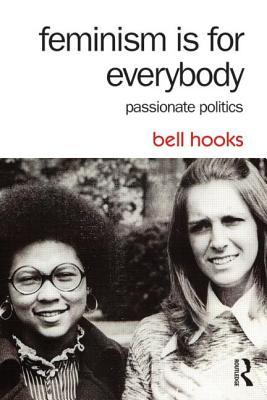
What is feminism? In this short, accessible primer, bell hooks explores the nature of feminism and its positive promise to eliminate sexism, sexist exploitation, and oppression. With her characteristic clarity and directness, hooks encourages readers to see how feminism can touch and change their lives–to see that feminism is for everybody.
PDF
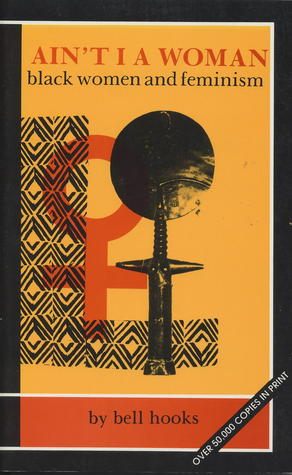
A groundbreaking work of feminist history and theory analyzing the complex relations between various forms of oppression. Ain’t I a Woman examines the impact of sexism on black women during slavery, the historic devaluation of black womanhood, black male sexism, racism within the recent women’s movement, and black women’s involvement with feminism.
PDF
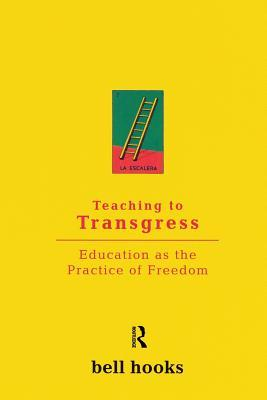
In Teaching to Transgress, bell hooks–writer, teacher, and insurgent black intellectual–writes about a new kind of education, educations as the practice of freedom. Teaching students to “transgress” against racial, sexual, and class boundaries in order to achieve the gift of freedom is, for hooks, the teacher’s most important goal. Bell hooks speaks to the heart of education today: how can we rethink teaching practices in the age of multiculturalism? What do we do about teachers who do not want to teach, and students who do not want to learn? How should we deal with racism and sexism in the classroom? Full of passion and politics, Teaching to Transgress combines practical knowledge of the classroom with a deeply felt connection to the world of emotions and feelings. This is the rare book about teachers and students that dares to raise critical questions about eros and rage, grief and reconciliation, and the future of teaching itself.
PDF
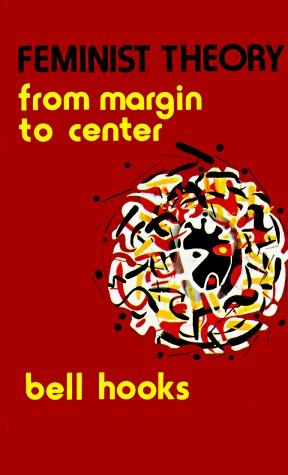
A sweeping examination of the core issues of sexual politics, bell hooks’ new book Feminist Theory: from margin to center argues that the contemporary feminist movement must establish a new direction for the 1980s. Continuing the debates surrounding her controversial first book, Ain’t I A Woman, bell hooks suggests that feminists have not succeeded in creating a mass movement against sexist oppression because the very foundation of women’s liberation has, until now, not accounted for the complexity and diversity of female experience. In order to fulfill its revolutionary potential, feminist theory must begin by consciously transforming its own definition to encompass the lives and ideas of women on the margin. Hooks’ work is a challenge to the women’s movement and will have profound impact on all whose lives have been touched by feminism and its insights.
PDF
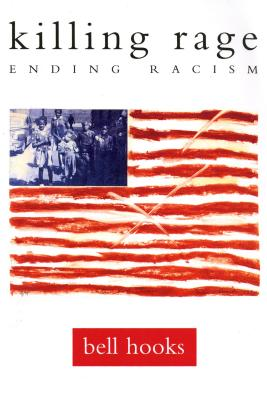
One of our country’s premier cultural and social critics, bell hooks has always maintained that eradicating racism and eradicating sexism must go hand in hand. But whereas many women have been recognized for their writing on gender politics, the female voice has been all but locked out of the public discourse on race. Killing Rage speaks to this imbalance. These twenty-three essays are written from a black and feminist perspective, and they tackle the bitter difficulties of racism by envisioning a world without it. They address a spectrum of topics having to do with race and racism in the United States: psychological trauma among African Americans; friendship between black women and white women; anti-Semitism and racism; and internalized racism in movies and the media. And in the title essay, hooks writes about the “killing rage"—the fierce anger of black people stung by repeated instances of everyday racism—finding in that rage a healing source of love and strength and a catalyst for positive change.
PDF
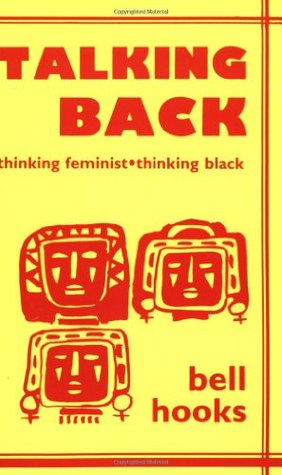
bell hooks writes about the meaning of feminist consciousness in daily life and about self-recovery, about overcoming white and male supremacy, and about intimate relationships, exploring the point where the public and private meet.
PDF
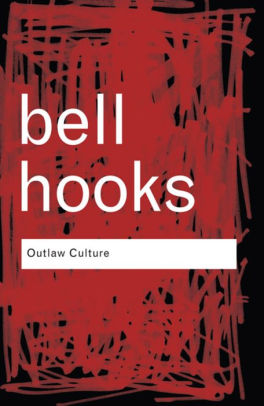
According to the Washington Post, no one who cares about contemporary African-American cultures can ignore bell hooks’ electrifying feminist explorations. Targeting cultural icons as diverse as Madonna and Spike Lee, Outlaw Culture presents a collection of essays that pulls no punches. As hooks herself notes, interrogations of popular culture can be a ‘powerful site for intervention, challenge and change’. And intervene, challenge and change is what hooks does best.
PDF
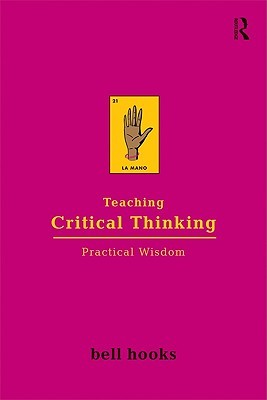
Addressing questions of race, gender, and class in this work, hooks discusses the complex balance that allows us to teach, value, and learn from works written by racist and sexist authors. Highlighting the importance of reading, she insists on the primacy of free speech, a democratic education of literacy. Throughout these essays, she celebrates the transformative power of critical thinking. This is provocative, powerful, and joyful intellectual work. It is a must read for anyone who is at all interested in education today.
PDF

Although it may not be the goal of filmmaker, most of us learn something when we watch movies. They make us think. They make us feel. Occasionally they have the power to transform lives. In Reel to Real, Bell Hooks talks back to films she has watched as a way to engage the pedagogy of cinema - how film teaches its audience. Bell Hooks comes to film not as a film critic but as a cultural critic, fascinated by the issues movies raise - the way cinema depicts race, sex, and class. Reel to Real brings together Hooks’s classic essays (on Paris is Burning or Spike Lee’s She’s Gotta Have it) with her newer work on such films as Girl 6, Pulp Fiction, Crooklyn, and Waiting to Exhale, and her thoughts on the world of independent cinema. Her conversations with filmmakers Charles Burnett, Julie Dash, and Arthur Jaffa are linked with critical essays to show how cinema can function subversively, even as it maintains the status quo.
PDF
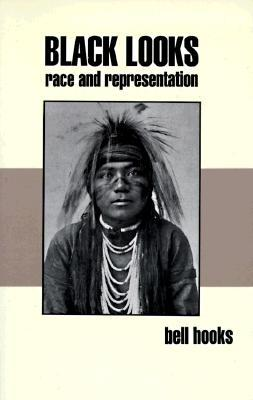
In these twelve essays, bell hooks digs ever deeper into the personal and political consequences of contemporary representations of race and ethnicity within a white supremacist culture.
PDF
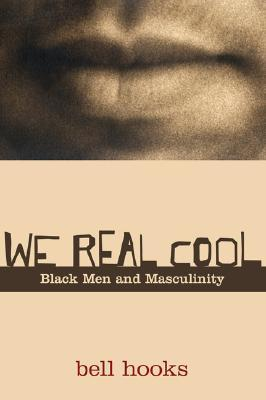
When women get together and talk about men, the news is almost always bad news,” writes bell hooks. “If the topic gets specific and the focus is on black men, the news is even worse.” In this powerful new book, bell hooks arrests our attention from the first page. Her title–We Real Cool; her subject–the way in which both white society and weak black leaders are failing black men and youth. Her subject is taboo: “this is a culture that does not love black males: ” “they are not loved by white men, white women, black women, girls or boys. And especially, black men do not love themselves. How could they? How could they be expected to love, surrounded by so much envy, desire, and hate?
PDF
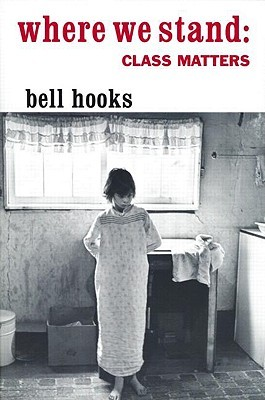
Drawing on both her roots in Kentucky and her adventures with Manhattan Coop boards, Where We Stand is a successful black woman’s reflection–personal, straight forward, and rigorously honest–on how our dilemmas of class and race are intertwined, and how we can find ways to think beyond them.
PDF
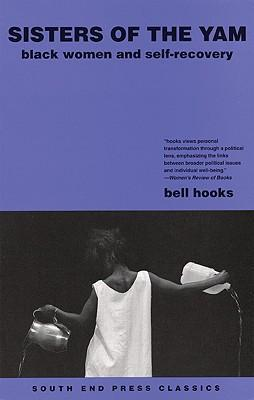
In Sisters of the Yam, hooks examines how the emotional health of black women is wounded by daily assaults of racism and sexism. Exploring such central life issues as work, beauty, trauma, addiction, eroticism and estrangement from nature, hooks shares numerous strategies for self-recovery and healing. She also shows how black women can empower themselves and effectively struggle against racism, sexism and consumer capitalism.
PDF
10K notes
·
View notes
Text
so i was asked by @defshad to share some resources about environmentalism and sustainability in relation to public transport for someone wanting to learn more about those topics. while my area is more in the city planning and sociology domain, I’m going to list some environmental and sustainability related resources that are useful across multiple disciplines.
First i want to say that when talking about environmentalism we must always involve indigenous knowledges. Oftentimes in academic and even non-academic circles, indigenous knowledges are invalidated because their knowledge is not presented in the established ‘western’ way, with numerous peer-reviewed studies to back up their claims, in turn invalidating the thousands of years of oral histories that have carried various knowledges to this day. For any non-australians i’d recommend researching historians (oral and written) by people in your regions.
For australians, here are some good resources* on the indigenous approach to writing about country and the environment. I tried to only include sources written in cooperation with Country and indigenous groups but there are some that are not. still worth reading these:
Telling stories in, through and with Country: engaging with Indigenous and more-than-human methodologies at Bawaka, NE Australia
Working with and learning from Country: decentring human author-ity
Dark Emu by Bruce Pascoe (such a good read)
Words for country : landscape & language in Australia (really love this one too)
I would also hesitantly recommend looking at Bill Gamage’s ‘The Biggest Estate on Earth’ because although he raises some good points re firestick farming technology, he constantly refers to indigenous australians as ‘aborigines’ and uses what looks like a colonialist era painting for the cover for a book which is like, not great tbh. but it’s one of those ‘iconic’ pieces of academic work that helped changed the direction of academic environmentalism in aus.
Nourishing terrains : Australian Aboriginal views of landscape and wilderness
(direct link) Integrating Understandings of a Yolngu Seasonal Calendar (this is by a white author and presented in a v traditionally academic mode but honestly i love the message of fuck u there’s more than 4 seasons because yeah)
For light reading on environmental sustainability i’d recommend following blogs @littleearthtalks @solarpunkcast and @solarpunkwitchcraft, first being a news blog and the other two posting regularly about ideas and practices to do with the solarpunk notion. I’d also recommend frequenting the conversation. That’s a really good news website based in australia but they cover worldwide topics too. All articles are written by academics and are peer reviewed before posting, their journalistic process is very transparent & i respect that. I linked to their environment section but they also cover a huge range of topics which you can search by if you want to find info on a particular topic.
For the ‘iconic’ theories that every environmental lecturer tells you to read, have a look at:
Silent Spring by Rachel Carson (review written by Margaret Atwood)
The Limits to Growth thesis
The IPCC’s summary for policy makers (basically a much more digestible version of their findings. they literally spell out how policy makers can tackle climate change and yet??)
The Death and Life of Great American Cities by Jane Jacobs (her chapters on how important sidewalks are to the urban experience are particularly interesting)
For urban planning theories that can help you understand why cities have developed the way they have, look up terms like:
the Garden City movement, the City Beautiful movement, desire paths (this ted talk covers it pretty well), walkable cities (often connected to the work/play/live idea used in transport discourses), sustainable communities (usually used in terms of resilience for emergencies like bushfires or environmental threats caused by large developments like dams).
This might actually be on the specific transport topic of what shad was asking for lmao - An interesting podcast on the politics of public transport infrastructure
and idk this podcast site always does incredibly interesting topics. I’ve linked to a search result for ‘green energy’ as that’s what shad was looking for. You can sort by topic too like architecture or cities or technology. There’s this super interesting one on the planning layout of salt lake city that blew my mind. so so interesting.
anyway, hope this is useful or at least interesting! if there are any planners or people out there with good resouces on the intersect between environmentalism and transport, please feel free to add on :)
*If you can’t access these pdfs, please let me know and I can get them for you or you can try your luck with JTSOR.
95 notes
·
View notes
Text
“In Costa Rica, an IMF supported attempt to privatize the country’s popular electric and telecoms utility was defeated in 2000 due to major protests and upheaval. Today, Costa Rica’s publicly-owned electric system—a network that includes a national public utility working in coordination with local, cooperative and municipal utilities—is the only one in the world to run an entire country on virtually 100 percent renewable energy. What’s more, any revenue from Costa Rica’s national utility is used to support other social services.”
— Johanna Bozuwa and Thomas M. Hanna, The Fate of the Planet Rests on Dethroning the IMF and World Bank (via probablyasocialecologist)
266 notes
·
View notes
Text
“The mystifying ideological claim that looting is violent and non-political is one that has been carefully produced by the ruling class because it is precisely the violent maintenance of property which is both the basis and end of their power. Looting is extremely dangerous to the rich (and most white people) because it reveals, with an immediacy that has to be moralized away, that the idea of private property is just that: an idea, a tenuous and contingent structure of consent, backed up by the lethal force of the state. When rioters take territory and loot, they are revealing precisely how, in a space without cops, property relations can be destroyed and things can be had for free.”
—
Willie Osterweil
In Defense of Looting
(via class-struggle-anarchism)
2K notes
·
View notes


